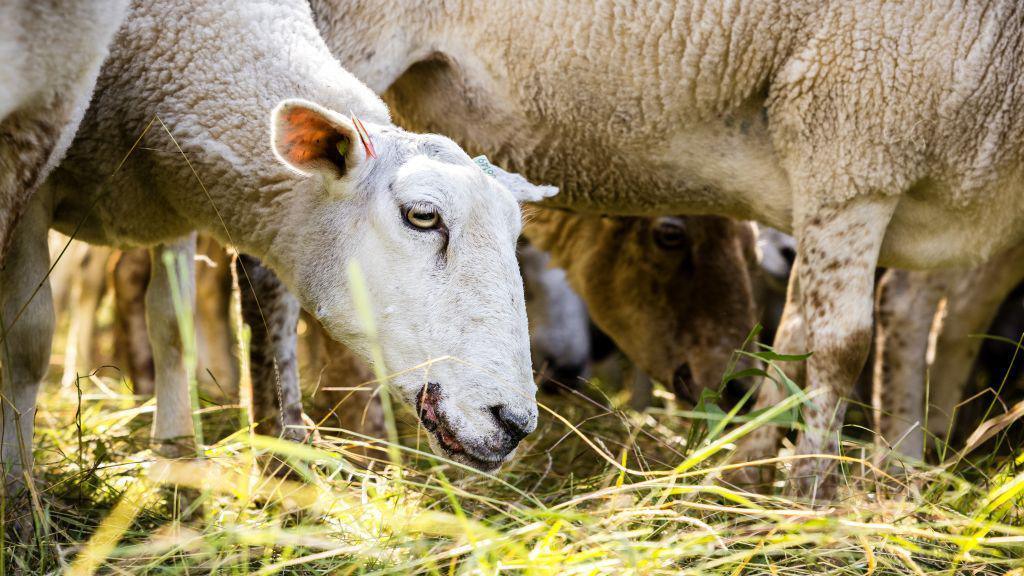Bluetongue restrictions impacting farmers

The restricted zone was widened on 17 September
- Published
Bluetongue is having a financial impact on farmers in the South East who cannot move their livestock outside government-mandated restriction zones.
There has been a local rise in the number of animals infected with the virus, which is spread by midges blown in the wind.
As a result, on Tuesday the Department for Environment, Food and Rural Affairs and the Animal and Plant Health Agency widened the restricted zone to cover the whole of Kent and East Sussex.
Roger Waters, who ran the annual auction at the The Dolphin Sheep Fair in Haywards Heath on Thursday, said farmers had "suffered financially".
The fair was held at the South of England Showground, just outside the restricted area.
Mr Waters said: ÔÇťNormally we have up to 8,000 sheep, but this time round we only had 3,000 sheep because of the restrictions.
"We have suffered financially as a result.ÔÇŁ
The restrictions are also impacting individual farmers who could not attend the event.
Mr Waters explained that normally farmers would bring anywhere from 50 to 100 animals and sell "decent" breeding sheep for between £150 and £220.
Animals inside the affected area, which stretches down the east coast from Norwich to Eastbourne, are allowed to be moved inside the zone - so a special sale is being arranged for those impacted.
Katie James from the National Sheep Association said: ÔÇťFarmers will have got their stock ready for this time of year and for some, selling breeding stock can be a big part of their income.ÔÇŁ
The virus, which isnÔÇÖt harmful to humans, can lead to blue, swollen tongues in animals, reduced birth rates and limited milk yields.
Follow 91╚╚▒Č Sussex on , on , and on . Send your story ideas to southeasttoday@bbc.co.uk or WhatsApp us on 08081 002250.
Related topics
- Published18 September
- Published15 August
- Published18 January